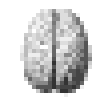![]() This website maintained by Bootstrap volunteers 0D
This website maintained by Bootstrap volunteers 0D
On this page:
![]() Tangibles and intangibles
Tangibles and intangibles
![]() For online viewers
For online viewers
![]() Interested parties
Interested parties
![]() Sponsors 1
Sponsors 1
Welcome to the home page for the Doug Engelbart's Colloquium 2000 April 2000The unfinished revolution, strategy and means for coping with complex problems 1A
Tangibles and intangibles 2 The Engelbart Colloquium, held at Stanford University Winter Quarter 2000, is titled "An In-Depth Look at The Unfinished Revolution", also known as "The Unfinished Revolution - II" or "Unrev-II". Inspiration for this Colloquium: Unlike its forerunner, a 1998 symposium named the "The Unfinished Revolution," which marked the 30th anniversary of Engelbart's 1968 "Mother of All Demos", the real thrust of this 2000 Colloquium is an overarching personal commitment. "It is forty-nine years ago," Dr. Engelbart reminisced at the outset of the first lecture, "that I, in some wild moment, committed my professional career to seeing how much I could maximize my career's contribution toward this thing of helping humankind's collective ability for coping with complex, urgent problems." 2A
This Colloquium: This site is at once a companion piece and an extension of Stanford's Center for Professional Development web pages devoted to the Colloquium, the Unfinished Revolution Part II, or "UnRev-II" for short. Its pages, which can be reached through the above menu bar, are not intended to be a capstone on the past, they are intended as an invitation to participate in an ongoing continuum of inventiveness for the good of humankind, to work toward more fully realizing ideas that have been on Engelbart's mind for decades, but still haven't yet sufficiently caught on to bear still more copious fruit for the benefit of all. These pages concern that very lifetime pursuit: a strategy and means for the executing that strategy, which is to, as much as possible, boost humankind's collective capability for coping with the world's complex, urgent problems. 2C Engelbart's experiential basis for this pursuit lies mostly within industry -- so much so that there is a strong tendency to perceive of his strategy as fundamentally an industrial management strategy. That is a mistake. It really is a strategy for all sorts of complex endeavors in which people need to work together, a strategy for all sorts of "social organisms," with the ultimate ones being global initiatives, representative of all peoples populating one shared habitat. See also Doug's Vision Highlights. 2D For online viewers 3 All ten three-hour colloquium sessions conducted by Engelbart and his more than 30 guests were webcast live. These sessions were recorded also for later viewing and transcription. You can watch all ten Colloquium sessions online at the Stanford Center for Professional Development website. 3E The sessions may also be followed from transcripts, separately or concurrently with the webcasts. And interested parties were invited to join the ongoing online discussions which mainly focused on work to further enhance the augmenting of human intellect with computers. [vE]. 3F People who should be especially interested 4
Sponsors 5 This colloquium was made possible through private donations by Pierluigi Zappacosta, Dan Lynch, Sun Microsystems, and through the hard work of many volunteers who have contributed their time and effort. 5A Imagine what we can
accomplish together
|
--
| top of page |
|
Stanford University is webcasting Engelbart's Unrev-II Colloquium also in close-captioned format. Reception required not only MS Windows, but MS Explorer as well. You can watch all ten sessions online at the Stanford Center for Professional Development website (you may need to register first; it's free) 10
May 27, 2000
While work on the Colloquium transcripts is in
progress, one will find unedited versions, unverified versions and final
versions. A transcripts is labeled unverified when the edited
text is yet to be checked against the original, spoken word. 10A
___
"Brain on network" is reproduced here courtesy of
Stanford Libraries



 The tangible components of Engelbart's productivity are a
string of inventions -- the computer mouse, display editing, outline
processing, multiple remote online users of a networked processor,
hyperlinking and in-file object processing, multiple windows,
hypermedia, context-sensitive help. These are very much up front in the
1998 symposium. A site maintained by Stanford University provides a rich
documentary about that event along with links to various points of
interest that in words and pictures demonstrate Engelbart's contribution
to computing and, hence, to our life as now we know it. Try to
imagine personal computing without his inventions, is the question
asked. For more background and links to the Stanford video archives of the 1998 symposium, see
The tangible components of Engelbart's productivity are a
string of inventions -- the computer mouse, display editing, outline
processing, multiple remote online users of a networked processor,
hyperlinking and in-file object processing, multiple windows,
hypermedia, context-sensitive help. These are very much up front in the
1998 symposium. A site maintained by Stanford University provides a rich
documentary about that event along with links to various points of
interest that in words and pictures demonstrate Engelbart's contribution
to computing and, hence, to our life as now we know it. Try to
imagine personal computing without his inventions, is the question
asked. For more background and links to the Stanford video archives of the 1998 symposium, see